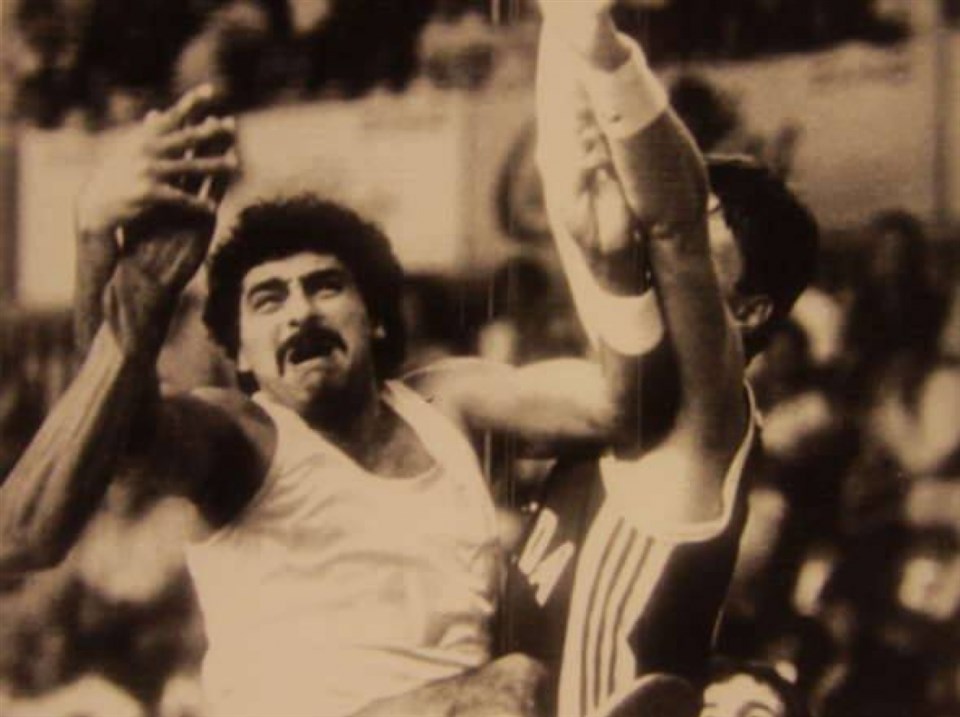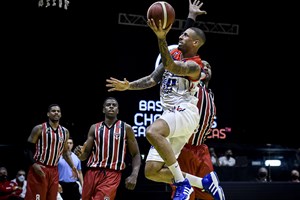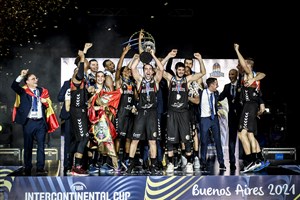
Time machine: When Obras won Argentina's first and only FIBA Intercontinental Cup in 1983
BUENOS ARIES (Argentina) - There's a special nugget of information not lost on people in Argentina ahead of the FIBA Intercontinental Cup showdown between Quimsa and Hereda San Pablo Burgos at the Obras Sanitarias Stadium in Buenos Aires on February 6.
Over the years, teams from Argentina have finished runners-up in the competition on four separate occasions, while the only time a team from the country has captured the crown was in 1983, in the same Obras Santarias Stadium.
It happened when Obras defeated Italians Jollycolombani Cantu, 89-76.
"It was something very beautiful, huge," said Carlos Romano, a crucial player in that Obras team.
 Romano was a key figure in the FIBA Intercontinental Cup win of Obras in 1983
Romano was a key figure in the FIBA Intercontinental Cup win of Obras in 1983
"I can't express how many people were in the arena. There wasn't enough space for all of the journalists.
"We were the representatives of Argentina basketball ... It was a huge step for basketball (in Argentina) from an international standpoint."
Romano was a backup point guard yet became a central figure for Obras as one of the club's iconic players, starting point guard Carlos Raffaelli, was recovering from an Achilles injury. Making him even more critical to the cause of the team led by Puerto Rican coach Flor Melendez was that Obras' other great at the time, Eduardo "Tola" Cadillac, was not 100 percent. He played, but with an ankle injury.
Romano served as the floor general and also poured in the points in victories over Oregon State (USA), Monte Libano (Brazil), Penarol (Uruguay), Simac Milano (Italy) and in the end, Cantu.
"IT WAS A HUGE STEP FOR BASKETBALL (IN ARGENTINA) FROM AN INTERNATIONAL STANDPOINT."
Why so many games? Unlike the 2021 FIBA Intercontinental Cup, which will be a one-game showdown between 2020 Basketball Champions League Americas winners Quimsa and Basketball Champions League (Europe) winners Hereda San Pablo Burgos, the 1983 event was played in a league format.
Making the competition even more important for Romano was that he was supposed to have been an Olympian a few years before but after helping Argentina qualify for the 1980 Moscow Games, his country boycotted the event.
The FIBA Intercontinental Cup was therefore a chance for Romano and Argentina to show off their basketball to the world.
 Romano helped Argentina qualify for the 1980 Olympics but the country then boycotted the event
Romano helped Argentina qualify for the 1980 Olympics but the country then boycotted the event
Romano scored 19 points in a 92-77 triumph over Oregon State, 14 in a 91-86 victory over Monte Libano and 22 in a 104-81 rout of Penarol. In the 84-75 win over Simac Milano, he had 16 points. That victory catapulted Obras into the Final, where Romano scored 20 in the 13-point conquest of Cantu.
Often asked by reporters about the game, Romano always remembers what happened at the end.
"When there were eight seconds remaining," he said, "I went to give the ball to my wife, who was pregnant with our son, Bruno, and I started to cry with Tola. We were like two children that had won a mini basketball tournament."
Argentina has achieved much in international basketball, from winning the very first FIBA Basketball World Cup in 1950, also in Buenos Aires, FIBA Americas Cups in 2001 and 2011, and the 2004 Olympic Gold Medal, in Athens. The country also reached the Final of the FIBA Basketball World Cup 2019 in China.
It has also captured the FIBA Intercontinental Cup, thanks to Obras.
"It was very important for Argentinian basketball," Romano said.
Will Quimsa add to Argentina's basketball successes at the same Obras Sanitarias Stadium?
Only time will tell, when Quimsa square off against European rivals Hereda San Pablo Burgos on February 6 at 18:00 local time (21:00 GMT, 22:00 CET).
FIBA














